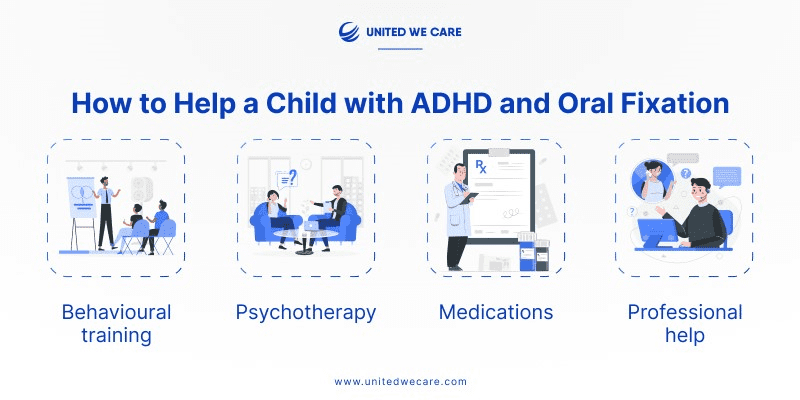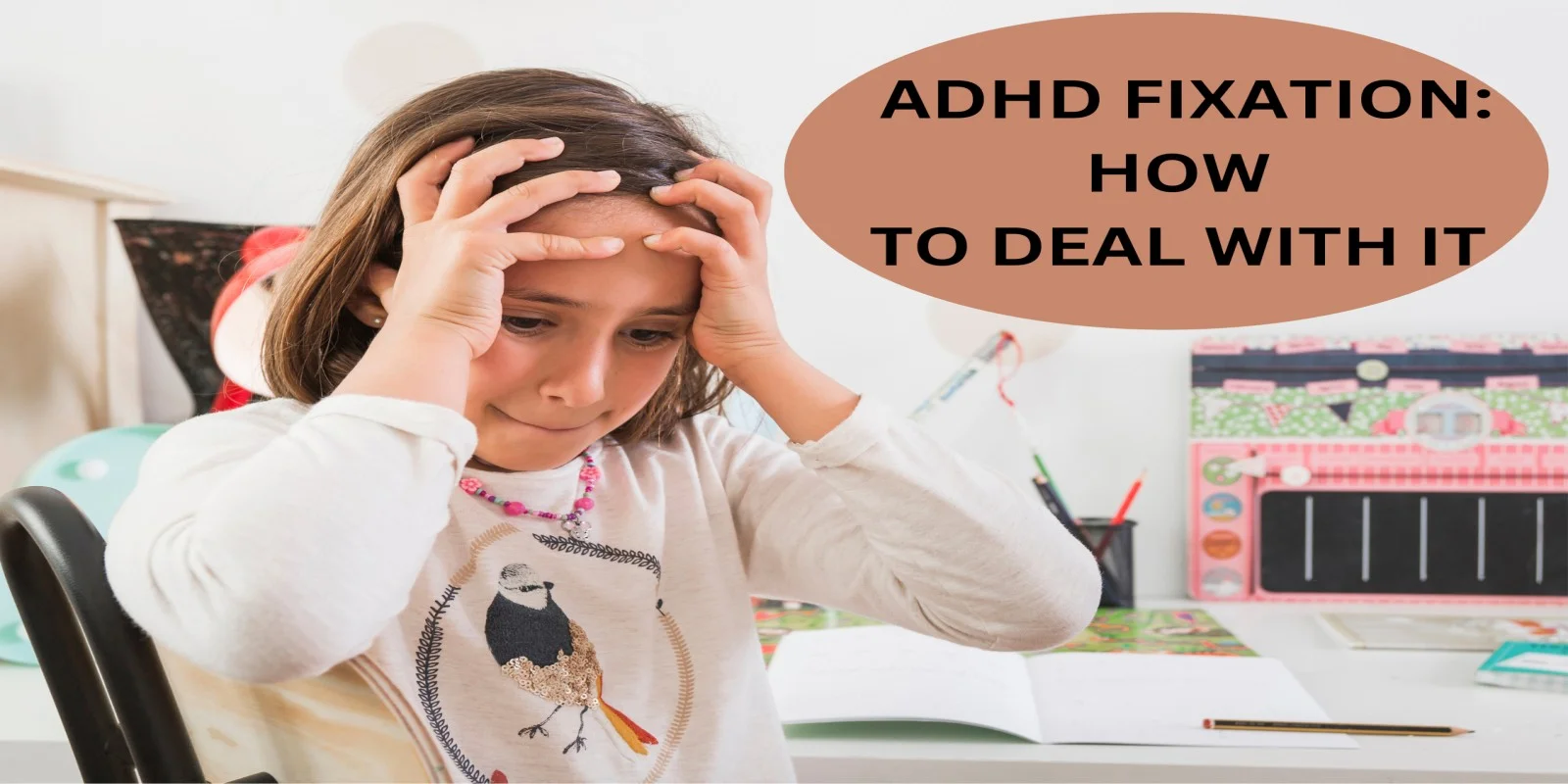Introduction
A child with ADHD or Attention Deficit Hyperactivity Disorder faces significant attentional issues. Especially in the ability to focus and concentrate. One such concern is fixation. In essence, fixation is directly associated with ADHD. Let’s find out what it is and why it is important to know about it.
What Is Adhd Fixation?
In addition to understanding what fixation is within ADHD, It is important to understand what ADHD is and why fixation is a concern for children with ADHD. ADHD is a neurological disorder that occurs during the developmental stage of the child’s brain.
In addition to having difficulties managing their energy levels, children with ADHD have difficulty in channelizing their attentional capabilities. This means that they struggle to concentrate or focus when they require it. Instead, they can’t control what their mind decides to focus or concentrate on.
Likewise, you might end up spending an excessive amount of time and concentration on a single task or activity. This is fixation. In fixation, you become obsessed or distracted by an object, task or activity of your liking to exceed limits. The fixation differs from just focusing as, in fixation you become completely unaware of your surroundings.
To learn more about how fixation is different from focus, check out this article on Hyperfixation vs. Hyperfocus.
What Is Oral Fixation ADHD?
Primarily, understanding of oral fixation requires knowing how sensory responsiveness occurs in ADHD. Sensory responsiveness refers to the ability to comprehend and respond through the senses in the environment. In ADHD, you might struggle to perceive senses and might seek them out. When you combine your need to orally feel stimulated , you might orally fixate .
As discussed above, fixation refers to excessive attention to a specific stimulus in the environment such that everything else becomes secondary. Similarly, in oral fixation, stimulating the mouth becomes a high priority for the child. Such that they might be obsessed or be stubborn about behaviours that provide oral stimulation.
For instance, a child with ADHD who is orally fixated will have age inappropriate behaviours. These behaviours include thumb sucking, eating food such as lollipops or chewing gums, nail biting, etc. You will find the child indulging in these activities excessively as compared to other children of similar age.
Similarly, in adults with ADHD, along with activities such as nail biting, other substance related tendencies become prominent. For instance, smoking or chewing tobacco is one of the most common examples of oral fixation in adults. Over eating or other activities that stimulate the mouth might also be related to ADHD.
Symptoms Of Adhd Fixation
Foremost, the symptoms of fixation can vary greatly from person to person. Due to the neurological difficulties and maladaptation you might find yourself fixating on one or several objects and activities. The prime reasoning behind fixation is either sensory stimulation or liking of hobbies or toys.
Secondly, there are some common underlying symptoms of fixation in ADHD. Spending an increasing amount of time performing or indulging in a hobby to a high extent. The high extent refers to inability to do any other tasks no matter how important or be unaware of surroundings, including safety.
Thirdly, while there is no calculated duration of the fixation, it can span from seconds to months. It will be difficult to follow time limits during fixation. Instead, you will find yourself spending increasingly more time if the fixation is not realised and worked upon.
Conclusively, there is no strict structure to the symptoms of fixation. In some cases the fixation might appear to be helpful because of its hyperfocus-like state. Remember to identify fixation states or stages will require observation and in some cases professional help.
How To Help A Child With ADHD And Oral Fixation?
In essence, symptoms of both ADHD and oral fixation can impact your ability to study, do chores and socialise. This means that symptoms can affect your daily functioning. Therefore, having ways to manage the symptoms becomes imperative.

Behavioural training
One of the most well researched methods to change maladaptive behaviour is by training. The training consists of using techniques such as positive reinforcement, using tokens and consistent discipline. Behavioural training helps in modifying pre-existing tendencies to fixate and helps with the child’s self regulation.
Medications
Since, ADHD influences the functioning of the brain and disturbs the natural neurology, it becomes an organic disorder. To treat the organicity of the nature of fixation, medications become helpful. However, for correct medication and dosage consultation from a licensed psychiatrist is necessary. Also, medications while helpful will not change the outward behaviours caused due to fixation.
Psychotherapy
Next, psychotherapy or working on the interrelation between thoughts, emotional regulation and behaviour improves symptoms. Essentially, Cognitive behaviour therapy or popularly known as CBT assists you by changing the impact of negative thoughts. Other forms of psychotherapy might also be recommended by a licensed and training psychotherapist depending on individual concerns and needs.
Professional help
Finally, as emphasised above, managing specific concerns due to fixation can seem daunting. Nowadays, there are several venues that can guide and provide assistance in helping you or your child. Most importantly, reaching professionals who have extensive experience in child psychiatry, developmental psychology and clinical psychology is ideal.
Conclusion
To sum up, a child with ADHD is prone to fixate on certain hobbies, objects or activities. Furthermore, oral fixation is a particularly concerning type of fixation. Along with this, we also learnt about the symptoms and management of fixation.
In order to help a child with fixation and ADHD related concerns, taking help is ideal. To reach out to professionals or further guidance for the above mentioned concerns, United We Care App is the apt space.
References
[1] T. E. Wilens and T. J. Spencer, “Understanding Attention-Deficit/Hyperactivity Disorder from Childhood to Adulthood,” Postgraduate Medicine, vol. 122, no. 5, pp. 97–109, Sep. 2010, doi: https://doi.org/10.3810/pgm.2010.09.2206.
[2] A. Ghanizadeh, “Sensory Processing Problems in Children with ADHD, a Systematic Review,” Psychiatry Investigation, vol. 8, no. 2, p. 89, 2011, doi: https://doi.org/10.4306/pi.2011.8.2.89.










